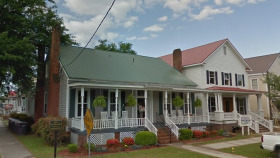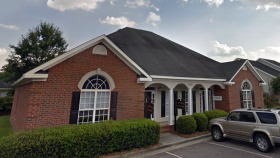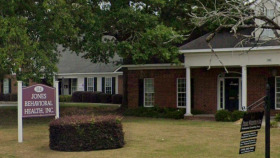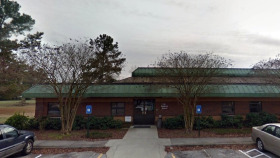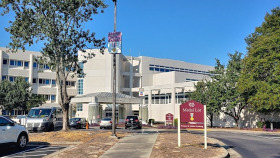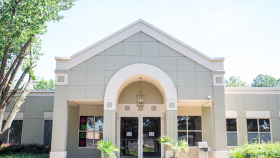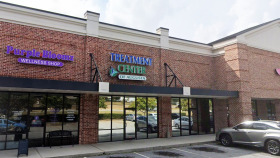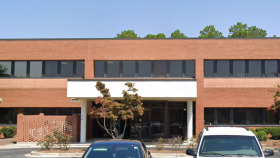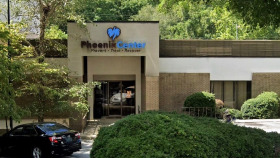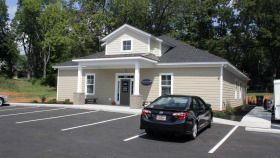Expert Insights
We’re used to hearing about how the Covid pandemic created a serious labor shortage in the United States. What we haven’t heard much about, however, is how addiction is creating a labor shortage on its own. This includes a labor shortage in Augusta, Georgia. Between 9% and 26% of workforce decline between 2020 and 2022 for those between the ages of 25 and 34 is believed to be due to a rise in opioid and methamphetamine addiction. Those numbers come from a paper released by The National Bureau of Economic Research. And it makes sense if you think about it. It’s very difficult to work on a consistent basis when you’re struggling with addiction. There are obviously times when you can’t gain access to your drug of choice, which brings on symptoms of withdrawal. And withdrawal sickness makes it nearly impossible to show up to work on time and perform at a high level. It just goes to show that addiction truly does impact nearly every facet of life, whether you initially realize it or not.
~ Nikki Seay
Cost of Drug Rehab in Augusta
The cost of Augusta drug rehab will depend on several factors. Some facilities offer free services, while other, more luxurious rehabs can cost thousands of dollars.
Some other factors that will affect your treatment costs are:3
Inpatient versus outpatient care (inpatient is typically more expensive)
The amenities offered, such as private rooms and gourmet food
Your length of stay at the rehab facility
If you have insurance, and how much of the costs your policy covers
Staff-to-patient ratios (lower ratios typically make the price go up)
Many Augusta drug rehabs offer payment plans, sliding-scale fees, scholarships, or other financial aid if you have trouble paying for treatment.
Low-Cost and Free Drug Rehab Centers in Augusta
 Unfortunately, costs have been an obstacle for people needing treatment. A 2019 study found that nearly 21% of people couldn’t afford to pay for the treatment they needed.4 Fortunately, Augusta offers free and low-cost rehabs in the area for those who need them.
Unfortunately, costs have been an obstacle for people needing treatment. A 2019 study found that nearly 21% of people couldn’t afford to pay for the treatment they needed.4 Fortunately, Augusta offers free and low-cost rehabs in the area for those who need them.
If you want to look for state-funded addiction treatment centers only, you can visit the government website, Substance Abuse and Mental Health Services Administration (SAMHSA), to see a directory of free rehabs and detox centers in Augusta.5
To qualify for free treatment, you may have to meet certain requirements, such as being a resident of Georgia, having an income below a certain threshold, and having no access to health insurance.
Does Medicare and Medicaid Cover Rehab Center Costs?
Yes, Medicare and Medicaid do cover rehab costs. The Affordable Care Act (ACA) recently mandated that all insurance policies issued under the state health exchanges, Medicare, and Medicaid, must help pay for costs in their programs.6
Medicaid
Medicaid is the largest provider of insurance in the country, covering over 72.5 million Americans.7 This medical program is funded by both the federal government and also by each state, which means that Georgia’s Medicaid program may look different from another state’s program. Many Augusta drug rehabs accept Medicaid as an insurance provider at their facility, but you have to meet certain eligibility requirements to get Medicaid coverage. Eligibility groups include low-income individuals, pregnant women, children, or those receiving supplemental security income (SSI).7
All Medicaid programs pay for some level of treatment for drug and alcohol addiction under their mental health services. These treatment programs typically include therapy, medication management, social work services, and peer support groups.8
Medicare
Medicare is also a federally funded medical program, but it does not receive funding from the state. This means the program is consistent throughout the country from state to state. To qualify for Medicare, you must be an American citizen, over the age of 65, or have a qualifying disability. Medicare covers a wide range of healthcare, including drug and alcohol rehab at the outpatient and inpatient levels, as well as medical detox treatment.8
Does Private Insurance Cover Addiction Treatment?
If you do not qualify for Medicaid or Medicare, you also have the option to obtain a private insurance policy. Many private policies cover rehab costs, but your out-of-pocket costs will vary widely.
Your insurance plan will most likely have a monthly premium cost, which is a recurring monthly amount you pay to enroll in the policy. Beyond your monthly premium, other costs are associated with a private insurance plan.
Co-Pays
The copay is a predetermined amount of money set by the insurance company that you are responsible for paying when attending an appointment or buying a prescription.
Deductible
A deductible is also a predetermined amount of money set by insurance that you will pay out-of-pocket in healthcare costs before the insurance company begins to cover a percentage of the costs.
Co-Insurance
Co-insurance is typically a percentage your insurance company will pay once you meet your deductible.
Out-of-Pocket Maximum
Your insurance company will begin covering 100% of healthcare costs once you reach the out-of-pocket maximum. You can also check the back of your insurance card for a phone number you can call to speak to your insurance provider directly about your plan details and rehab costs.
Augusta Drug and Alcohol Use Statistics

A study in 2016 found that about 8% of Georgia residents engaged in illicit drug use,
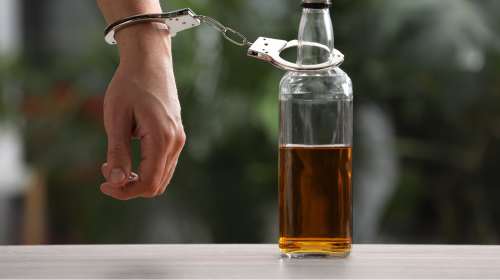
In the same time frame, just over 20% of GA residents engaged in binge drinking.1
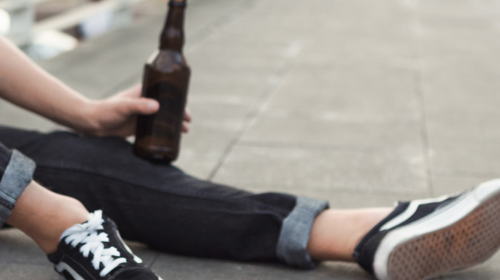
Over 6% of residents had a substance use disorder related to alcohol or other drugs.1
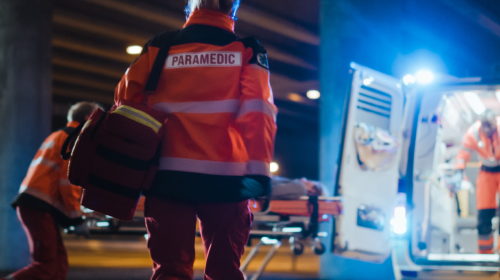
125 people overdosed in Richmond County from January 17 to March 13, 2021
Drug and Alcohol Laws in Augusta
Georgia 911 Medical Amnesty Law: This law protects you from arrest, prosecution, or conviction of certain drug offenses when you seek medical assistance for someone with a drug overdose. Alcohol overdoses are also covered under Georgia’s 911 Medical Amnesty Law.
Incarceration Alternatives: All individuals in Georgia who are under the Department of Community Supervision now have access to every available incarceration alternative, including treatment services. This provides some individuals the opportunity to receive addiction treatment services in lieu of jail time.
Protections for Employees Seeking Addiction Treatment: The federal Family Leave and Medical Act (FLMA) and the Americans With Disabilities Act (ADA) both provide protection for your job if you voluntarily take time off of work to seek alcohol addiction treatment.
Resources
- Opioid Abuse. (n.d.). Office of Attorney General of Georgia Chris Carr.
- Augusta, Georgia Population 2022 (Demographics, Maps, Graphs). (n.d.). Worldpopulationreview.com.
- FindTreatment.gov. (n.d.). FindTreatment.gov.
- Substance Abuse and Mental Health Services Administration. (2019, February 5). 2016-2017 NSDUH State-Specific Tables.
- National Institute on Alcohol Abuse and Alcoholism. (n.d.) Drinking Levels Defined. National Institutes of Health.
- Broome, K.M., Knight, D.K., Joe, G.W., & Flynn, P.M. (2012). Treatment program operations and costs. Journal of Substance Abuse Treatment, 42(2), 125-133.
- Substance Abuse and Mental Health Services Administration. (2020). Key Substance Use and Mental Health Indicators in the United States: Results from the 2019 National Survey on Drug Use and Health. (HHS Publication No. PEP20-07-01-001, NSDUH Series H-55). Rockville, MD: Center for Behavioral Health Statistics and Quality, Substance Abuse and Mental Health Services Administration.
- Substance Abuse and Mental Health Services Administration. (2016, December 16). Directory of Single State Agencies (SSA) for Substance Abuse Services
- Healthcare.gov. (n.d.). Mental health & substance abuse health coverage.
- Medicaid.gov. (n.d.). Eligibility.
- Mentalhealth.gov. (2020, March 18). Health Insurance and Mental Health Services.
- American Psychiatric Association. (2013). Diagnostic and Statistical Manual of Mental Disorders, Fifth Edition. American Psychiatric Association Publishing.
- National Library of Medicine. (n.d.). Alcohol withdrawal.
- National Institute on Drug Abuse. (2022, March 22). Treatment and Recovery. National Institutes of Health.
- Melemis, S. M. (2015, September 3). Relapse Prevention and the Five Rules of Recovery. The Yale Journal of Biology and Medicine, 88(3), 325-332.
- National Institute on Alcohol Abuse and Alcoholism. (2021). Treatment for Alcohol Problems: Finding and Getting Help. National Institutes of Health.




